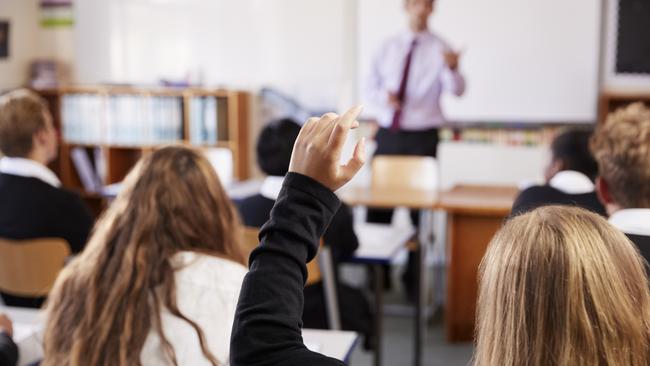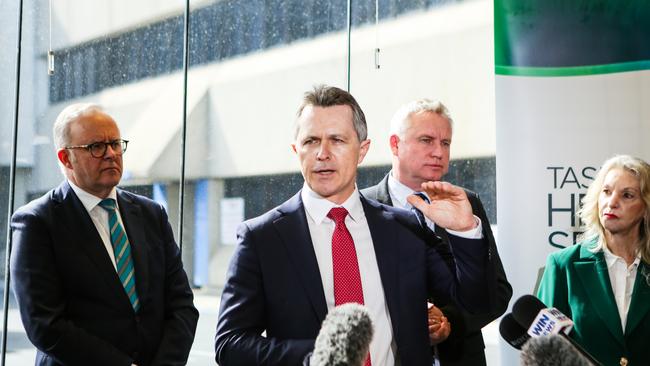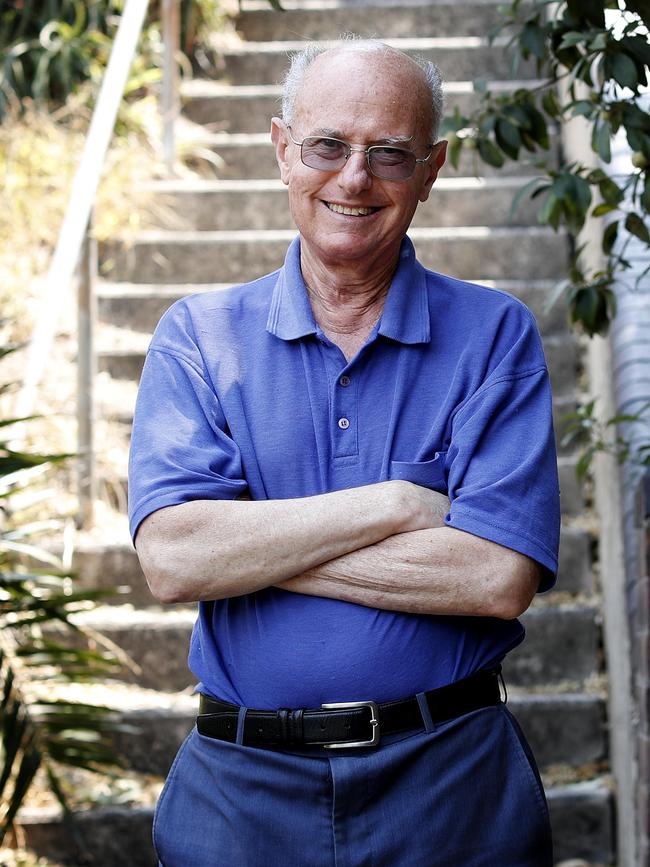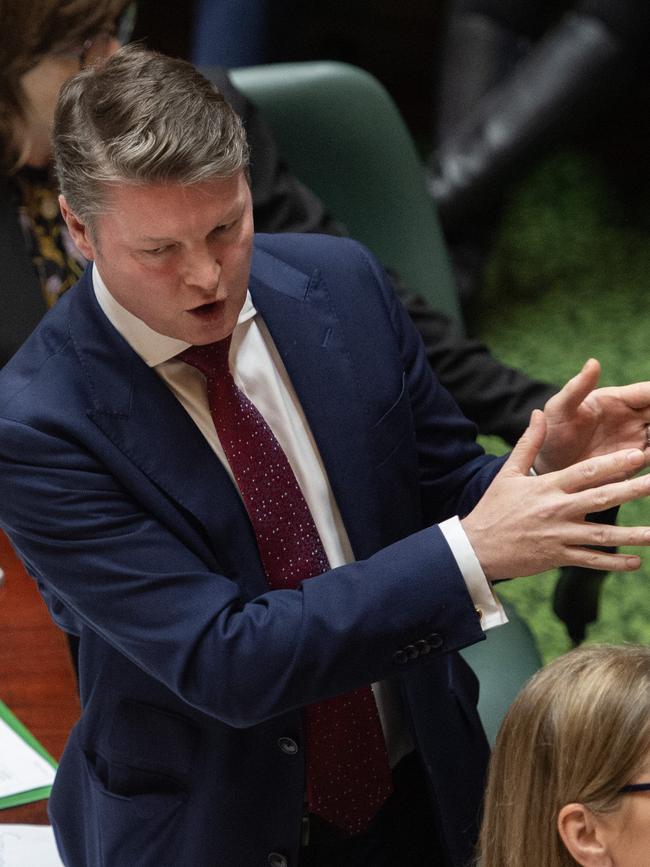After two decades of education failure, it’s time to reset the agenda

Jason Clare’s National School Reform Agreement, Better and Fairer Schools – signed by Western Australia, the Northern Territory and Tasmania – sets out the expectation that states and territories will improve outcomes by bringing classroom practice into alignment with the evidence of how humans actually learn. All states have mandated or recommended phonics in reading instruction and explicit teaching for all subjects as the starting point.
Breaking the cycle of deteriorating Australian school performance, confirmed in 20 years of PISA international comparative tests, may now be within sight. Funding is no longer the main battleground: the Productivity Commission reported “despite a 21 per cent increase per student in real recurrent funding for schools over the past decade, broad improvements in student outcomes have not materialised”. Curriculum and classroom practice are in the frame.
We’ve lost too much time, however. For nearly two decades education faculties and even education systems have advocated for methods that were ineffective and unproven. What’s at stake when schools pursue the wrong strategies in curriculum, pedagogy and teacher education is not just the productivity of our education system, but the wellbeing of our citizens.

At stake is a better life: a life nourished by stories, ideas, concepts, knowledge, history, literature, science, art, music, joy, meaning, purpose, happiness. The wrong approach to early learning means less words are learnt by our children. And, as Wittgenstein said: “The limits of my language are the limits of my world.”
The wrong reading instruction means fewer of our children experience the joy of reading. They know fewer stories, they can make fewer distinctions, they can describe their emotions and life experiences less well, they are less able reasoners, they make poorer decisions, they are less good at accurately calculating and measuring things, they are less able to get high-paying jobs dependent on mastery of mathematics.
They have less satisfying relationships as they are less able to describe feelings and name them, and self-regulate. Having the wrong approach to curriculum means schools don’t function properly: teachers in the same year don’t teach the same things, compounding gaps.
When we teach less knowledge, our students graduate with less creativity, having fewer ideas and precedents to draw on. Fewer will thrive in higher education, which requires the foundations of knowledge to already be solid. We know that more will go to prison, more will have poor health.
And finally, as story dwellers, humans with our innate need for stories to belong to – if we know fewer stories, we belong less securely to our community, and to those around us. This is all at stake when curriculum and teaching approaches are not ideal and best practice is not common practice.
The good news is we can make real change without reinventing the wheel. We can learn from peer countries such as England, which has dramatically improved reading, maths and curriculum overall. Its reform agenda embraced the science of how humans learn and the importance of sharing the cultural, scientific and intellectual inheritance of the world with the next generation.
In reading, England moved to third place in international rankings, and in maths England’s 15-year-olds have risen from 29th in the world in 2009 to 11th in 2022.

There is a powerful body of evidence from cognitive science that tells us how humans learn and become knowledgeable. It should be known by everyone – but especially by education leaders and educators.
This research effort has been led from Australia by Emeritus Professor John Sweller, a world-leading cognitive scientist from the University of New South Wales. He and his collaborators, are responsible for one of the biggest breakthroughs in understanding how humans learn, store and retrieve information.
Known as cognitive load theory, it provides the theoretical and empirical base for explicit teaching, knowledge-rich curriculums and traditional classroom design. The multi-decade global research effort has confirmed many instructional techniques: the necessity of a rounded knowledge base and vocabulary, the power of repetition, and memorisation, the role of worked examples, guided practice and routines.
Jason Clare has insisted that incoming teachers be trained in these approaches. Now the states, Catholic diocese and independent schools are working out how to implement these approaches. Each state is at a different point. Ben Carroll in Victoria and Prue Car in NSW – both deputy premiers as well as education ministers – are the most vocal and clear-sighted on what’s required.
The challenge is immense. Supporting 9500 schools and 400,000 teachers through a reboot in their thinking about teaching and learning is tough homework.
At the individual school level we know how it looks. The strategies employed by high-performing schools are the same no matter the postcode. They create safe and orderly classrooms with consistent rules and routines.


The teachers lead the learning and believe all students can learn. The focus is on mastering knowledge in every lesson. They use the same high-impact teaching strategies, explicit teaching, lesson design and delivery, across the school. They focused relentlessly on effective reading instruction, identifying struggling readers and intervening early.
The leadership works on building knowledgeable teachers and supports them with quality professional learning and instructional coaching from within and beyond the school.
Finally, every one of these schools can show you their curriculum map for their whole school. It will specify what needs to be learnt by when, and it is ambitious. And every teachers knows what their students need to learn to achieve mastery. There is no classroom or lesson lottery.
Exemplar schools can be found across Australia. From Bentleigh West Primary and Ballarat Clarendon College in Victoria, Marsden Road Primary in NSW, to Warriapendi and Wattle Grove primaries in WA. All have used the same strategies to sharpen their practice.
This change can be achieved through reallocating the more than $2bn spent on teacher and leader professional learning each year.
Schools are centres of learning and belonging. They have always been our best means to level up the playing field of life. We all suffer when we don’t do this well. Our schools can improve – using tried and tested models. Our future creativity, equity and prosperity depend on it.
Elena Douglas is founder and chief executive of Knowledge Society and convener of the Australian School Improvement Summit, held in Melbourne on October 17. The Rt Hon. Nick Gibb, the United Kingdom’s former Minister of State at the Department for Education, will deliver a keynote address, as well as Victorian Deputy Premier and Education Minister Ben Carroll.







A quality school education, when done well by a society, is the gift that keeps on giving. We know the key driver of educational outcomes is the quality of the curriculum and the resources given to teachers to teach it. Second is the effectiveness of the teachers. The push to reform Australia’s curriculum – to be one that actually specifies knowledge to be learnt – is under way. In the meantime, effective classroom teaching is the best focus to improve results.